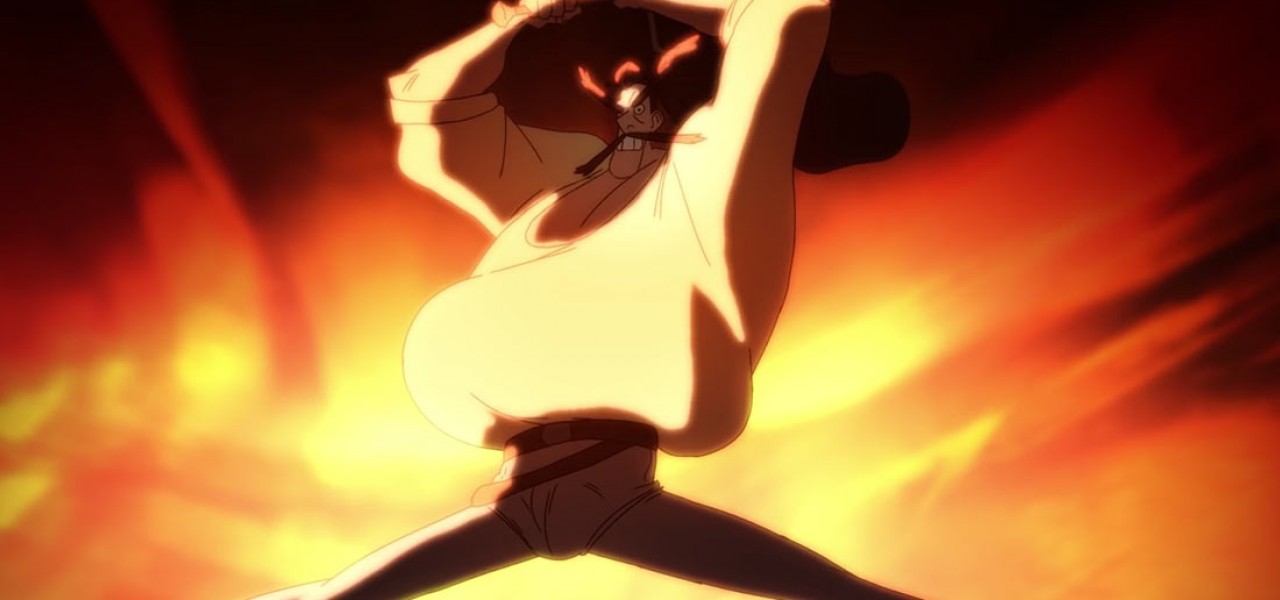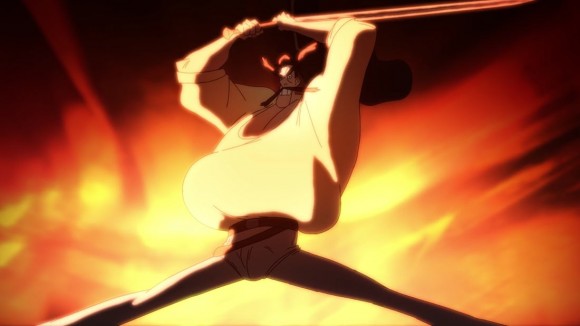

Thanks to Crowdfunding, Sun Creature Studio Reaps ‘The Reward: Tales of Alethrion’
Three years ago, a graduation short called The Reward spread online like wildfire.
In its first day on Vimeo, The Reward gathered 164,000 views, and many more followed. Its creators, graduates from The Animation Workshop in Denmark, channeled the hype into a crowdfunded series, The Reward: Tales of Alethrion, and launched Sun Creature Studio, which is now co-owned by seven people. Through a combination of talent, ambition, and hard work, they’ve managed to create a franchise that rivals in quality anything produced by much better-funded corporate networks, and perhaps as importantly, they’ve also built a dedicated audience for their work.
Denmark’s Sun Creature has become part of a generation of animators creating their own projects, and professional careers, through crowdfunding. Wishing to make their own young-adult comics and series based in The Reward’s epic fantasy world, instead of knocking on television’s closed doors the young creators launched a Kickstarter campaign barely six weeks after releasing their graduation film. They asked backers for $115,000 to make Tales of Alethrion’s first seven-minute episode in the series.
“We knew it was a lot of money for a short film by some unknown recent graduates,” Sun Creature Studio director Mikkel Mainz and producer Charlotte de la Gournerie told Cartoon Brew, during the Cartoon Springboard conference last November.
“Actually, I had opted for an $80,000 goal, but my partner Bo [Juhl Nielsen] said we should push it to $150,000,” recalled Mainz. “In the end, we decided to meet in the middle.”

Sun Creature’s team understood that in order to raise that amount, they’d need to build a community. With 63 followers on his blog before The Reward, Mainz admitted that they “weren’t social media guys, for sure.” Three weeks before Kickstarter, the team started a Tumblr and other social media accounts to share The Reward’s artwork. It paid off, gaining them 2,600 Tumblr followers, of which many backed the Kickstarter.
A month after kickoff, Sun Creature’s Kickstarter campaign concluded with nearly $143,000. Excited about exceeding their goal, the young creators gathered for brainstorming sessions on a sailboat. By the time they returned home, the film had grown from seven to 24 minutes.
“We just had no idea about budgets and planning and all these things,” said Mainz. Luckily, producer Charlotte de La Gournerie, a graduate of the film production program at France’s Gobelins school, came aboard to help with production management.
With additional funding from the Danish Film Fund, Sun Creature’s team managed to complete their 24-minute short, Tales of Alethrion: The First Hero, within a year of its original delivery date.
Through a second Kickstarter, Sun Creature aimed for an entire series (budgeted at $80,000 per episode) with a set-up that allowed audiences to choose which stories they wanted to see as episodes. “The audience becomes the producer, in a way,” explained Mainz. “They are who we’re going to listen to, instead of some guy with statistics.”
Currently, Sun Creature’s team is producing two episodes crowdfunded through their second Kickstarter. The success has allowed Sun Creature to quickly grow and create on their own, but it has also come with challenges.
“The first year of Tales of Alethrion was spent pulling a lot of teeth, energy-wise,” said Mainz. “I’d been helping out with Song of the Sea while directing Tales of Alethrion, and we were making all of the mistakes we could possibly make. One day, I suddenly got a stress concussion; I fainted and hit my head. For three months, I couldn’t watch a screen. I slept for like 16 hours a day. And that’s just my story; other people had to deal with other things in the studio.”
“Since then we’ve learned not to say ‘yes’ to everything, to respect our and each other’s wishes and needs,” Mainz added. “The problem was mostly balancing work and private life, which is also kind of what our project is about. Relationships, not careers, are what makes life worth living.”
With Tales of Alethrion being Mainz’s main focus, Sun Creature is developing other projects while taking on advertising work to pay the bills. De La Gournerie explained that the studio can’t survive with a single project like Tales of Alethrion alone.
“It’s too risky,” she said. “There’s no existing business model for it, really; we’re figuring it out along the way. Even though we are successful at what we’re doing, we’re not paying ourselves a lot. Tales of Alethrion is very demanding of time and money, and the artists’ energy.”
“It’s important for artists to work in different styles to keep creative, so as a studio we need to have different fires burning at the same time,” Mainz agreed. “But personally, I could easily do Tales of Alethrion for another ten years. I have this torch that I will never let burn out.”
Sun Creature continues to experiment with different approaches to self-funding Tales of Alethrion. The team will soon launch a Patreon campaign, a subscription-based alternative to the Kickstarter model that tends to work better for artists who release work consistently.
Meanwhile, Sun Creature’s crew keeps backers involved with Reddit interviews, YouTube videos, livestreams, drawing contests, and even playing Dungeons & Dragons with fans. At least 15 per cent of Mainz’s time is spent online connecting with audiences. When there’s a Kickstarter or another fundraising event, the amount of his time spent interacting with the community can grow to 40 per cent.
De La Gournerie said that Sun Creature would enjoy trying a more traditional approach to producing the series with the support of corporate backers. “It would be so cool to be on Netflix or Amazon. We could do merchandise, have a steady income, gain a larger audience, and put out more animation faster.”
But such deals often come with conditions, they’ve learned. “Amazon said they wanted to do The Reward for children, but they also wanted to change the title and main characters, and remove the violence,” de La Gournerie said. “We sometimes forget, but the creative freedom that we have right now is really amazing.”
